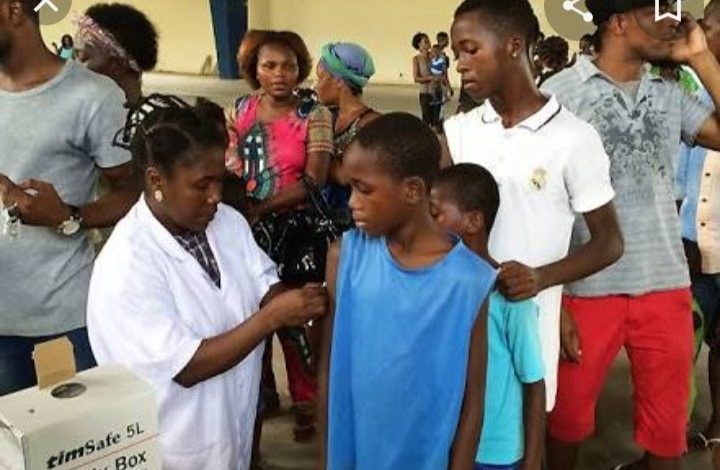Yellow Fever Claims 25 Lives In Benue State

Three communities in Ogbadibo Local Government Area of Benue State, North Central Nigeria, are currently battling with a yellow fever outbreak which has so far claimed 25 lives, an official said in Makurdi.
Dr Godwin Oyiwona, the Commissioner overseeing the Ministry of Health and Human Services, made the development known during a meeting with members of Disease Response, Surveillance Action and Risk Communication Team.
The meeting held at Benue Public Health Emergency Operation Centre.
Oyiwona who is the Commissioner for Science and Technology in the state said the outbreak was recorded in Owukpa and Otukpa initially but spread to Orokam, all of Ogbadibo Local Government Area.
HumAngle gathered that many others afflicted with the disease are presently hospitalised.
Oyiwona said the government was putting necessary measures in place to curtail the spread of the disease to other parts of the state.
He encouraged people to use the long-lasting insecticidal mosquito net recently distributed to women and children in the state to prevent mosquito bites.
Yellow fever virus is transmitted among humans primarily through the bite of infected Aedes or Haemagogus species of mosquitoes.
It occurs mainly in Africa and South America but can be prevented through vaccination, according to medical experts
Dr Terungwa Ngishe, the state epidemiologist, said that yellow fever virus could be picked from a host monkey in the jungle and occasionally in settlements, and transmitted to humans.
Ngishe said the State Ministry of Health had trained case managers and deployed them to General Hospital, Otukpa, Saint Mary’s Hospital, Okpoga, and Federal Medical Centre, Efekwo, as well as some well known private hospitals in the areas.
The epidemiologist explained that the meeting was to review the outcome of the illness for which samples taken to the National Reference Laboratory, Abuja, had confirmed the outbreak to be yellow fever.
He said enough commodities had been supplied to sustain patients through acute and active phases of the illness with mass immunisation to boost the immunity of the people since the disease had no cure yet.
Ngishe explained that the symptoms of the disease were acute fever, stooling, abdominal pain, vomiting, yellowness of the eyes in some cases and bleeding.
He urged opinion and community leaders to educate and encourage people with such symptoms to visit the hospital for test and treatment.
A World Health Organisation (WHO) study on yellow fever shows that a small proportion of patients who contract the virus develop severe symptoms and approximately half die within seven to 10 days of infection.
The WHO stated that large epidemics of yellow fever occurs when infected people introduced the virus into heavily populated areas with high mosquito density and where most people had little or no immunity, due to the lack of vaccination.
Meanwhile, Nigerian health authorities recorded 222 suspected cases of yellow fever with 76 confirmed deaths in Bauchi, Delta and Enugu states in the first two weeks of November.
The Director-General of the Nigeria Centre For Disease Control, Dr Chikwe Ihekweazu, said the government was committed to WHO’s Eliminate Yellow Fever Epidemic (EYE) Strategy to ensure everyone accessed vaccination against the disease.
Ihekweazu urged Nigerians to refrain from seeing the disease as strange as reported in the media, saying there was nothing strange about it considering that the first case was detected in Nigeria over 40 years ago.
Support Our Journalism
There are millions of ordinary people affected by conflict in Africa whose stories are missing in the mainstream media. HumAngle is determined to tell those challenging and under-reported stories, hoping that the people impacted by these conflicts will find the safety and security they deserve.
To ensure that we continue to provide public service coverage, we have a small favour to ask you. We want you to be part of our journalistic endeavour by contributing a token to us.
Your donation will further promote a robust, free, and independent media.
Donate HereStay Closer To The Stories That Matter




